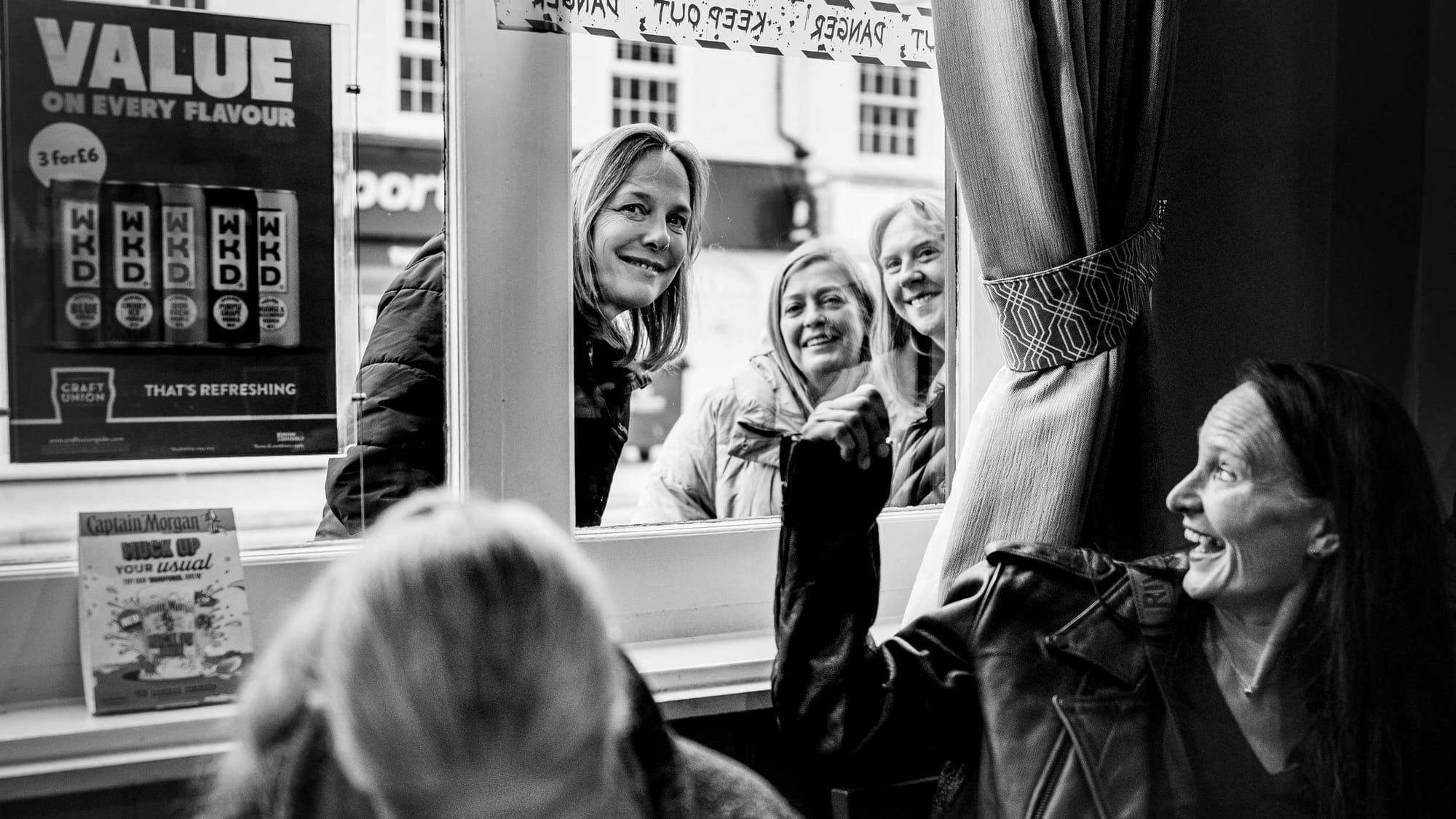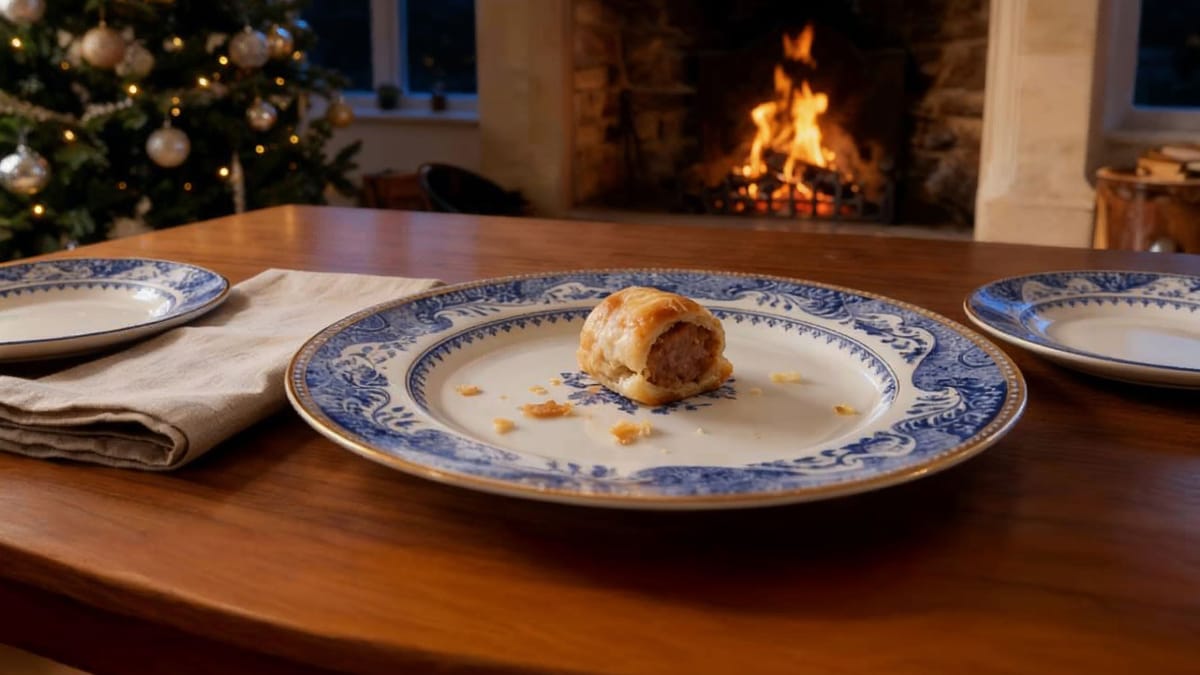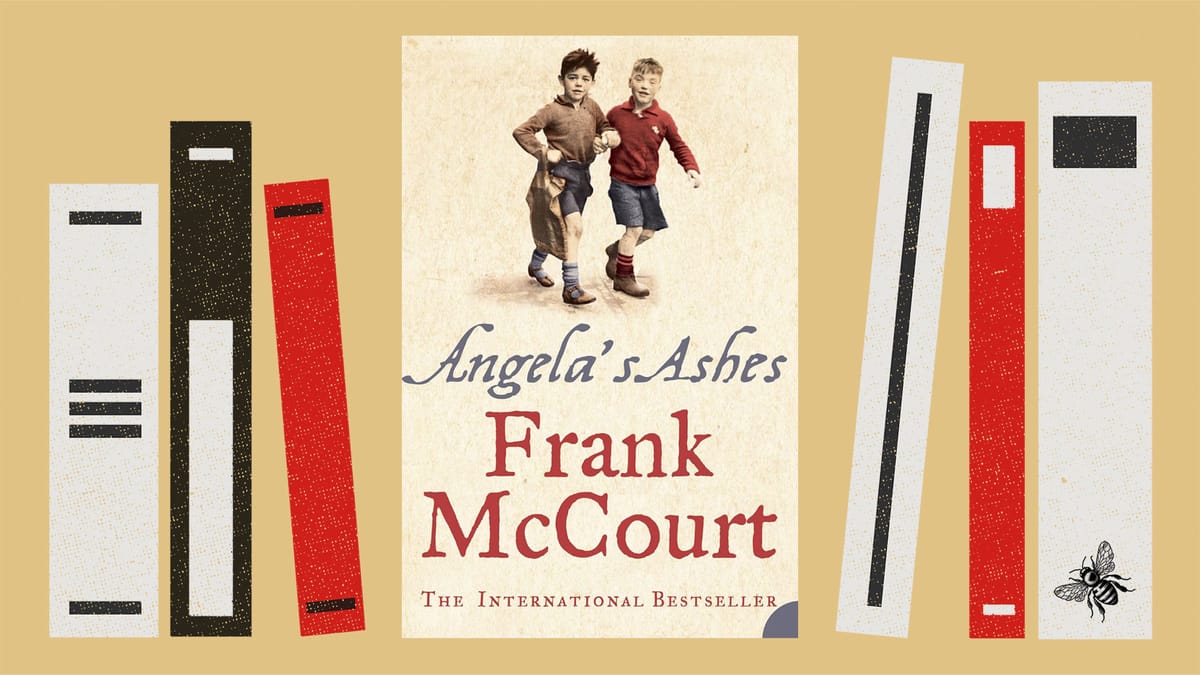A shell, like a pool float from the leisure centre.
She was really there. Naked and quivering, floating on a piece of plastic. A baby. The old man ran into the water. Half-formed prayer frothing up to his lips with the dregs of last night’s lager. Inches away, the old man slipped on a clump of kelp. Pain shot through his old joints. Crawling towards her, he felt glass shatter under his hands. A broken beer bottle sliced through his palm. The cold water turned red. Salt burned his eyes. She was being pulled farther out.
With his fingertips, he groped at the plastic. It was a shell, like a pool float from the leisure centre. The edges were soft, chewed by the winds. With a jerk, he tipped the baby into his arms. She filled him with a new strength. Enough to return to the shore, his body on fire. On land, She opened her eyes. This was no ordinary infant. Her skin was gold. Her hair carried the scent of orange blossom. With a coo, She stretched out Her limbs. Weighing him down, till he was on his knees again.
Proof, he thought. They would never doubt him again.
Tying his sodden jacket around her, he carried Her back to town. This old dock worker, his lungs full of asbestos, bursting with delight. So blinded, he did not see the asters and gorse blooming as She passed.
Birkenhead welcomed Her with slack jaws and dropped handbags. This woman, taller than the tallest lad, with tresses of hair that burned like the sun. Without thinking, they followed her. A silent parade, circling closer to a building with columns and a pediment. Made of granite and sandstone. Easy to mistake for a temple. The town hall.
Inside the council chamber, men in cheap suits sweated over piles of paper. Pens twisting in agony, trying to solve equations that should never have existed. At their head was the mayor, whispering prayers under his breath. They could not divide the ever-smaller worm to feed the town. They needed salvation. Truly, anything.
Then he heard the stampeding of feet. The thumping of fists against chests. The doors to the chambers swung open. It was Her. Ducking under the doorframe, the townsfolk appeared around her. And together, they began to dance.
Their bodies were rusty. But with each clicking joint, a strange feeling filled them. It was happiness. From Her, in exchange for their bodies. The men in suits tore up their spreadsheets and files. Throwing handfuls of paper that bloomed into rose petals as they fell. They did not quite know why, but they all loved Her.
She received their adoration with open arms. As She bowed, the old man’s jacket fell from her body. In Her nudity, they could not tell Her age. Puberty had come, but was it years or only months ago? The eyes of the young were shielded with the corners of shirts and scarves. Many of the teenage boys, and some girls, ogled. Lust oozing from every pore. Then, Her face became lightning. Brutality rippled across Her. The old man acted quickly, tearing a quilted tapestry off the wall. As the squares of red and blue fabric were draped over Her, Her smile returned and She lay down, to sleep.
Filled with fear, the townsfolk whispered into the night. What was She? A miracle or a curse? Since the yards had closed, had they not all prayed for change. An object of transformation.
The old man, his clothes still damp, looked at Her sleeping. He had saved Her. He, too, loved Her. But he knew that the ones who answer prayers are beyond comprehension. Literal tyrants. Easily confused, by vague confused wishes. We should take her to the city over the river, he said. To sell her.
But these words unlocked memories in the townsfolk of his previous claims. Swans with the face of women. Ghost ships. And wasn’t he also the scab? Who had crossed the picket on the first day of the strike.
So they chased him out of the town hall, with his tall tales and poisoned words. Running, he cursed them. But even in his heart, he couldn’t curse Her.
Galvanised, the rest of the town worked in shifts to worship Her. Each hour, a new family replaced the last, bringing with them the little they could offer. A beaded cushion, a mug commemorating Princess Di, strings of plastic pearls.
In the morning, the town was different. The columns of the hall were covered in flowering vines and scented herbs. In the square, rows of plants appeared. Laden with aubergines, tomatoes, and pomegranates that were so ripe they would spontaneously burst, releasing gushes of sweet juice. The gnarled trees that lined the yard were now heavy with lemons, oranges, and fat olives. The jobless young men were enraptured. Without teaching, they started harvesting the crop. Making brine for the olives from the sea. Salting lemons. Their muscles ached with purpose. To worship Her. To lie in Her temple. To become Her beautiful boys, with chests glistening with olive oil and heads crowned with garlands of fig leaves and myrtle.
Her harvest was abundant and, though not rich, they were no longer hungry. And with this came a new happiness.
In time, the townsfolk forgot the old man. He spent his days on the street corner, eating rotten olives and sour oranges. Bitterness took root inside him. For it is easy, when spurned, for love to turn to hate. A desire to destroy. He started to leak poison into every passerby. For weeks, the old man polluted the town from his street corner. His words settling in the hearts of the townsfolk, like heavy, hard stones. Why did they still have to work? Why did their bones still ache?
One by one, they gathered outside Her temple. Too hesitant to knock. Of what they might find beyond. Then the doors swung open.
From the darkness, She emerged. Barefoot and beautiful. Terrifying in her perfection. The townsfolk threw at Her their wishes and hopes. A discord of desires.
Her voice cut through them all, ringing out like a cathedral bell.
Silentium.
A dead language, but one they found themselves guessing. So the townsfolk threw themselves onto the pavement. Behind Her, the beautiful boys appeared. Olive-oil chests glistening under the weight of hessian sacks. From each leaked a trail of seeds. Wheat and corn. Sesame and pumpkin.
The sky grew overcast, a cloud of feathers descending on the town square. Pigeons from the city over the river, ratty and hungry. Gorging on the seeds, the birds grew fat and juicy. The townsfolk were confused. They were no longer hungry for food. They wanted more.
Her feet were moving, another dance. More furious before, cracking the concrete and shaking the buildings. Spinning around, the pigeons joined her. A swarm of grey. The townsfolk cowered. Although if one had looked up, they would have seen Her magic. The pigeons drained over colour. The greyness running through Her, leaking out into a shimmering puddle around Her feet. A quivering mirror to the sky above.
The sound of dancing stopped. But when the townsfolk looked up, She was gone. In Her place were doves, as white as marzipan, and a disc of shimmering metal.
The owner of the pawnshop who went to the metal first. He brought out his hammer and struck it gently. Then he rubbed it on a touchstone and, from his grin, they rejoiced. It was silver.
Soon the fruit was left to wither on the vine. Instead, the townsfolk made nets from wicker chairs and tights. They would catch the pigeons, and She would transform the birds. Giving the people silver, and the skies doves. With each gift, though, Her face grew more fierce.
They did not care, spinning Her silver into fat stacks of cash. Placated, the townsfolk grew complacent. Unaware of the vultures circling ever closer.
*
Life was hard in the city over the river. The queues outside the job centre coiled like intestines. The summer’s riots still smouldered in the heart of the city. These strangers had no time for the rumours blowing over about the town. Murmurs of a place where fruit grew on the roadside. Where the potholes were filled with lakes of solid silver.
Then one day, a car crossed the river. A Merc, with windows tinted darker than the night. A little lad clambered out, enveloped by bodyguards. The mayor’s son, they recognised him from the papers. Diving into the Argos in St Johns, the strangers watched him tear open the catalogue. Picking gifts at random. One Amstrad record player, two Matchbox racing kits, three Gola sports bags. Waiting for his boxes, they watched him play with the chain under his shirt. Silver, as thick as a noose. So, with claws outstretched, the strangers followed the lad back.
Emerging from the shadows of the tunnel, the strangers found a town transformed. El Dorado on the Wirral, where ladies wandered around in furs and the men were shirtless, wearing garlands of leaves. Fruit they’d never seen before fell from trees, smashing into sweet rubies on the pavement.
Not a soul would speak to the strangers. Declining their cheap rollies with smiles glistening with silver. Kicking stones, the strangers found the old man. Lonely and still on his corner, he perceived their attention as love. He told them the miracle. He told them about Her.
The next morning, the strangers rammed their van into Her temple. Brandishing knives and guns, a surprising calm settled in them. A feeling projected from another. They slaughtered the beautiful boys. Reaching the inner sanctum, scented with orange blossom, they saw Her for the first time. But rather than cower, they instead reached out with hungry hands. With a clearer wish.
In their hands, She burst into pearls. Delicate and small, shattering under the fleeing strangers. An irritation sticking into the soles of their boots.
As soon as She disappeared, the town filled with death. The plants began to wither, coiling into dark tendrils and dry stumps. Then the silver crumbled into dust. The doves plummeted to earth, cracking themselves open on the cement. Out of their husks crawled rats, wet and hungry.
The decay drove the men into despair, and they locked themselves inside their homes. It was left to the wives to roam the streets, spearing rats to roast over fires made of dead olive trees. Unlike the men, though, they cried together in pain. Not just for Her, but for the decades before. For their boys returning from the yard with maimed limbs and tarred souls. For the strikes. For the pain that passed through the generations, in the spirals of their genes.
They moved through the town like a funeral procession, stopping at the yard.
“Come back,” they said. “Give us meaning again.”
The water licked their slippers and pumps. Then came Her voice.
Sacrificum
“We offer ourselves.”
There was no response.
“Anything, really,” the wives begged.
Alieni
“The strangers.”
The sea rose to swallow the wives. They emerged from it transformed. Faces hardened into beaks. Crystals of salt grew from their arms, forming feathers as sharp as glass. Monstrous creatures, halfway between woman and swan. Flying towards the city over the river. Beaks open, to hunt.
They did not return until the storm. One so great that fish fell from the skies. Smashing through windows and roofs, suffocating in the air. The townsfolk sheltered in Her temple. The few that remained. Husbands with long beards and eyes unused to the light, and children so afraid of being bitten by rats that they would only be carried. The old man refused to come inside. Tying himself down with a yard of rope, he feared what they had made Her.
Through the broken doors of the temple, the men and children saw Her again. High in the sky, riding on a swan-wife. They ran towards Her, tears streaming in the wind.
In the yard, the swan-wives folded around Her. Wings outstretched like waves of shattered glass. She stretched out Her hands. With bloodstained fingers She petted the long necks of the swan-wives. The women cried out in agony, their feathers rippling. From their beaks, they hacked up chunks of flesh. Gnawed-off fingers. Chewed-up bones. It was the strangers, flayed like the carcasses in the butcher’s windows.
The men and children fell to their knees. Through trembling fingers they watched as the sea grew red. The same colour as Her eyes.
*
She was different. Silent. Smeared in blood. Guarded by the swan-wives. With little left in the town, the men tried to offer their bodies. Dancing with weak limbs. Singing with broken voices. At the men’s performances, only the swan-wives stirred. They let out an unholy sound, between laughter and agony, before flying into town. Using their beaks to break up the rotting pier and empty houses. Bringing the wood to Her.
The men followed suit, collecting driftwood from the beach. Ripping up their floorboards, giving Her their foundations.
This time, they were not blessed with fruit or silver. Instead, the air in the town grew salty. Centipedes and earwigs infested beds and carpets. Limpets grew underneath toilet seats and in the dark corners of bathrooms. The men were too starved to contemplate whether these were gifts or not. She was busy, burning their offerings in the furnace of the yard. Day and night it blazed, churning out iron boxes. Caskets, too small for any adult.
Whispers began to fill the town. Mutters around the park. Arched eyebrows over the tops of pub urinals. A request floated on the breeze.
Infantes, infantes, infantes.
So poisoned, it could only be from one source. The old man.
“Is it you we hear?” the men said to him.
Still tied to the lamppost, he only smiled.
“The request we hear every day.”
One of the men kicked him. His head tipped up, revealing a lipless grin. His flesh gnawed away by rats.
“Then it is Her,” they said. “Who demands our children.”
The mayor went first, offering up his little lad. He fell asleep in Her arms, before the swan-wives sealed him into a casket.
The box bought the town a strange sense of finality. So, to the devouring mother they offered more. Bundles and prams. No longer hoping for anything but an ending.
With each casket, a shape began to form in the yard. It was a ship, made of the slumbering bodies of their children. Hollow-cheeked, they brought the final child to Her. An infant. Passed through the kelp and broken beer bottles, the rotting flesh of the strangers, along the long necks of the swan-wives.
The baby was silent, swaddled in dirty cotton. In Her arms, she awoke. Cooing like a dove, she was placed on the deck of the ship.
There was silence, then an immense sound. Like the sudden laughter of schoolchildren. The ship was moving out of the yard. Blowing on a breeze scented with orange blossom. Clipping the horizon, where it became something small and plastic.
The townsfolk found themselves filled with a song. A single request. No longer the jumble of half-formed wishes and desires.
“Terminare,” they chanted.
Finally, She understood. As Her face grew soft, the sea flooded in. Warmer than ever before. Filling their longs. Washing away the skeletons.
Only the baby was left, floating on a plastic shell. Towards another mistaken wish. Another vague prayer. Another town to drown.
All donations go towards supporting the Bee’s mission to nurture, publish promote and pay for the best new working-class writing.









Comments